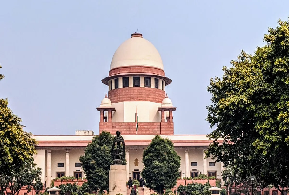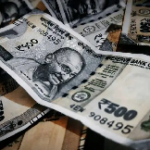The Supreme Court of India has advised the central government to prioritize job creation over the distribution of free rations. This suggestion came in response to a case where the government’s free food distribution scheme was being debated. While the government’s efforts to provide free rations to the needy during times of crisis, such as the COVID-19 pandemic, were appreciated, the court expressed concerns about the long-term impact of such schemes.
Why The Court Made The Suggestion
The Supreme Court’s advice is rooted in the belief that long-term solutions for poverty and hunger should focus on employment rather than temporary relief like free food. The court highlighted that while distributing free food helps in emergencies, it is not a sustainable solution for lifting people out of poverty.
Job creation, the Court pointed out, would give people a chance to earn their own livelihoods, improving their economic situation in the long run. When people have stable employment, they can support themselves and their families, ensuring a more permanent solution to poverty.
The Importance Of Employment
Employment is one of the key drivers of economic growth. By encouraging job creation, especially in rural and underserved areas, the government can empower individuals and improve the overall economy. Having a job also provides individuals with dignity and a sense of purpose, beyond just basic survival.
Moreover, creating jobs can have a ripple effect on various sectors such as education, healthcare, and infrastructure, as more people with steady incomes will lead to increased demand for goods and services, stimulating growth in different industries.
What The Government Has Done So Far
The central government has implemented several initiatives aimed at providing free rations to those in need, especially in the aftermath of the pandemic. The Pradhan Mantri Garib Kalyan Anna Yojana was one such initiative, offering free food grains to millions of people. This scheme has helped many families struggling to make ends meet during difficult times.
However, the Supreme Court’s suggestion urges the government to look at the bigger picture and work towards creating a robust job market. Initiatives like Skill India, Make in India, and the Atmanirbhar Bharat campaign are examples of how the government is trying to promote job creation and economic self-sufficiency.
Moving Forward
The Supreme Court’s advice is a timely reminder for the government to rethink its long-term strategies for addressing poverty and unemployment. While distributing free rations is important in times of crisis, the focus must also be on creating sustainable employment opportunities to ensure that people can become self-reliant.
For India to overcome challenges like unemployment and poverty, it will require a balanced approach that combines immediate relief with long-term economic solutions. The Supreme Court’s call for prioritizing job creation is an important step towards achieving that balance.
In conclusion, while free rations provide a safety net in times of need, it is job creation that can offer a lasting solution to poverty and economic inequality in the country. The government now has the challenge of finding the right balance between immediate aid and sustainable growth.



